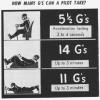Search the Community
Showing results for tags 'flight medicine'.
-
I know this topic was somehwhat covered but I just thought I would ask so I could clear it all up. I had a pilonidal cyst surgically removed this past week and was wondering how that would affect my flight physical down the road. I looked it up in the AFI for Medical Standards for Flying Duty and it states "Pilonidal Cyst, if there is a history of inflammation or discharging sinus in the 2 years preceeding the examination. Surgery for pilonidal cyst or sinus is disqualifying until the wound is healed, there are no referable symptoms, and no further treatment or medication is required." The surgeon that performed my surgery stated that it will heal in a month or so, which is good. If everything works out with receiving a pilot slot, I will probably go for my flight physical around this time next year. So I am assuming that I am good in hopes if everything heals correctly. Also how should I go about telling my cadre about this at my ROTC Detachment? Would really appreciate any thoughts or advice anyone has in this particular topic! THANKS!
-
- flight physical
- flight doc
- (and 5 more)
-
There are two common points of confusion with flight surgeons. The first is whether or not a military flight doc is a surgeon as understood by the definition of a particular type of physician who carries privileges to perform invasive surgery. The second is whether or not flight docs are pilots. Many junior enlisted members see the flight doc wearing the same uniform, patches, and rank as a pilot and assumes since they fly, they are also pilots. There is another forum post on the pilot physician program, but this makes up only a very small number of individuals. The majority of flight surgeons are: 1. Not surgeons 2. Not pilots The followup question typically questions why a flight doc has a requirement to fly. I've recently written a blog post on this topic to answer the question (https://goflightmedicine.com/flight-surgeons-fly/), but I really see three primary reasons for flight docs to participate in regular flying duties: 1. To better understand/experience aerospace physiologic stressors 2. To appreciate the particular demands of the aircraft and mission of the assignment flying unit 3. To build trust and social relationships with the flyers Flying is one of the coolest parts about being a flight doc and a required duty since the position was invented during WWI. Occasionally, however, an objection is raised as to if this is really a necessary or even a good idea. I'd be interested to hear the comments from the peanut gallery!
- 16 replies
-
- military medicine
- flight doc
-
(and 2 more)
Tagged with:


